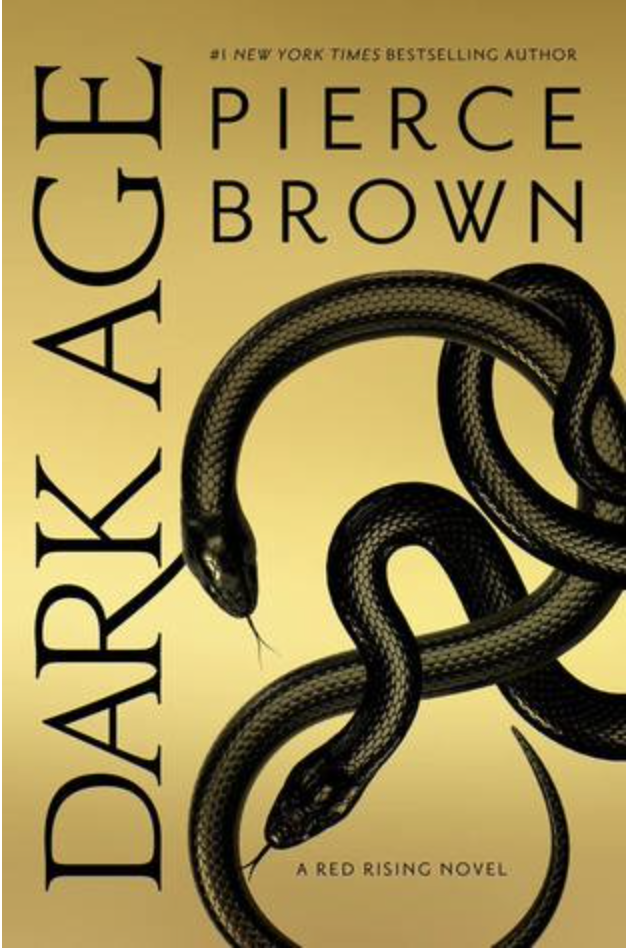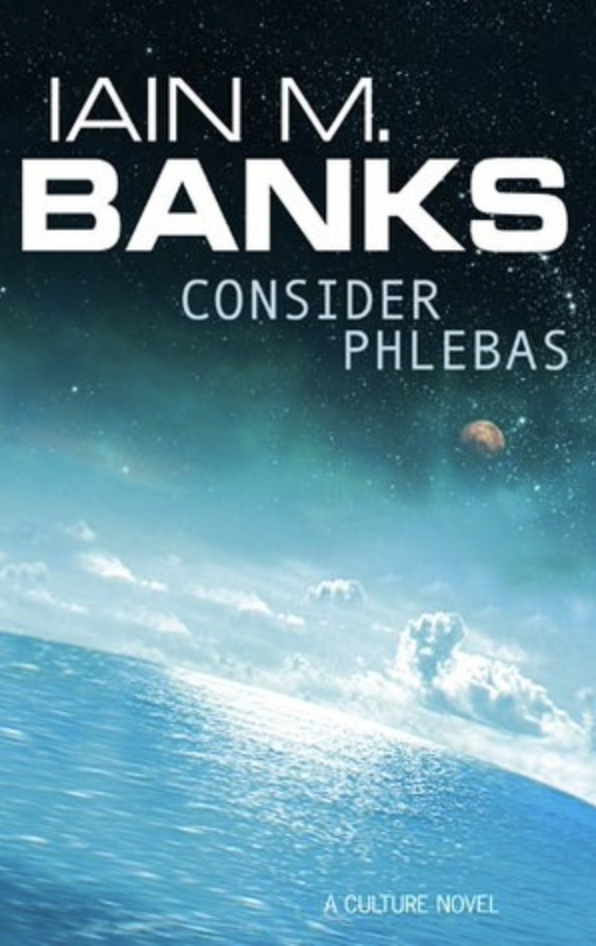This month I read fewer books. Why? In August I was sick in bed with Covid for about two weeks straight, and I had a lot of catching up to do. Furthermore, I took a small beach vacay at the end of the month and did less listening/reading. Finally, I needed some time to digest Iron Gold and Dark Age. 😩😢😤
Iron Gold
By: Pierce Brown
Everything that happens in this book sets up Dark Age. Unlike my usual, clinical, and spoiler-free reviews, this one CONTAINS SPOILERS. As I suspected, democracy does not take root too well in the soil The Society has left behind. There are hold-out factions of Golds both in the inner planets and the outer planets. As one might expect from so bellicose a people, they are not going down quietly. Additionally, there is a displacement of the populace from their customary caste pursuits. Rather than having an answer to that issue, there is general chaos for anyone who did not come from means. Reds are in refugee camps, the Obsidians are barely being held in check by Sefi, and throughout the book, tension continues to build. The democracy that The Rising built is tenuous at best, even though each of the colors now has representation. In short, no one is happy. Except for, maybe, Sophocles. That’s what is going down around the inner planets. Meanwhile, Cassius and Lysander are stumbling into folly after folly in the rim with the Moon Lords. Romulus is probably my favorite non-central character. Between his screed in Morning Star and his exit in this novel, the man is just fucking epic. Now that THAT opinion is out of the way, let’s get back to Cassius and Lysander. I hate Lysander. I hated Lysander from the moment they happen upon the distressed ship. My burning loathing for him only intensified as this and Dark Age continued. Some would argue on his behalf - that he is a product of his upbringing. Certainly, therein lies a kernel of truth. Nonetheless, if that motherfucker isn’t a textbook sociopath then I ¯\_(ツ)_/¯. Given, the way PB wrote his inner monologue in Iron Gold vs. Dark Age is different. It is more subtle. His narcissism is easier to miss. He has a semblance of care for Cassius in Iron Gold. But more than his “love” of Cassius is a disdain for him, which is peppered in finely. Think about it this way, those of you who have read the book - Darrow was never fully trustworthy as a POV character throughout the whole first trilogy. He often lied to himself about his feelings or motives. Lysander is no different. When he says he “loves” someone, do not take him at his word. I want to say more, but I will refrain. The Lysander storyline features prominently throughout Iron Gold. If you endeavor to read these books, you need to go in as an unspoiled virgin to have the truest experience. I would be remiss to neglect Apollonius and his 2-kilo steak and air violin. He is magnificent, but by the end, you can add him to the long list of people ceremonially calling Darrow’s name before battle. I’ll wrap this up by saying I was the happy little frog in the slowly heating pot for this entire book. There were moments of loss ala PB. There were also fast-paced vignettes. But in hindsight, it was all a bloody damn trick to get you to read Dark Age.
Dark Age
By: Pierce Brown
Ya know, I thought The Triumph easily trumped The Red Wedding (ASOIF). I said to myself then, “Damn. That Pierce Brown knows how to write a tragic scene and make me really feel it.” The Triumph, and The Jackal’s little box, and Ragnar, and Nerol, and, and, and… It was all a lot, but I felt like I could handle it. This book. Fuck this book. Not really. But kinda, yes. There was so much to process that some of the most profound losses did not even register. The last few hundred pages are nearly unrelenting. It was a vice from beginning to end. Just when I thought I was going to crack, indeed, I was sobbing uncontrollably, the vice loosened by a fraction of an inch. There really isn’t too much more to say. This is the best book of the series, and they have all been phenomenal. The only thing left is for me to double down on my FUCK LYSANDER stance. BUT, now that I’ve taken a hard line, PB may pull some shit out of nowhere and make me consider Lysander as redeemable all over again. I await this next book with great fear and anticipation.
Amusing Ourselves to Death
By: Neil Postman
Wow. This is such an interesting book to read from a historical perspective. As early as the advent of TV, the author of this book, was able to forecast its negative impact on society. Fast-forward to now. The trends identified in this book have only become more exacerbated. The negative social impact of TV has only become more pronounced now that we are also contending with social media. Reading AOTD was a great exercise in extrapolation. If you have been interested in the multitude of research that has been released about Facebook, Instagram, and TikTok re: aberrant social behavior and negative self-image, this book is up your alley. Also of note, the author only lived to the early 2000’s and I suspect is currently rolling in his grave at about 10,000 revolutions per minute.
Brave New World
By: Aldous Huxley
After reading Amusing Ourselves To Death, I had to go back for a re-read of BNW. Most people probably know this; in case you don’t, the long and short of it is a society controlled through distraction. The element that jumps out at me the most is the “Feelies.” It is mind-boggling that this book remains cutting edge. With VR and wearable tech, our society is definitely on the cusp of realizing “the Feelies.” In fact, I was postulating with a friend that the only thing that will be able to unseat a 5-15s video meme in our collective attentions is a medium through which we can experience our distractions of choice as if first-hand. For its continued relevancy and character studies, I definitely am glad I circled back for a re-read. BNW is a classic for a reason.
The Stand-In
By: Lily Chu
Lesson learned. Read the whole synopsis. The first few lines of this book’s summary are outlined as a list. Lists are a theme in the book. It makes sense. The surface-level premise of a life-changing identity mix-up sounded fun. I was in. Then I realized that it was also a bit of a romance novel. I clicked back to see if that was mentioned anywhere in the summary. Yes, if you “read more” it was there. If you are into soft-core porny romance this is not for you. In that regard, it is more YA. But I don’t really dig that genre, so all the cute flirting and thrill of the chase felt like a guilty pleasure for me even though it was innocent enough. TSI was written in 1st person. I found that to be a great way to get to know the cast of characters. I felt invested in Gracie like a friend by the end of it. I didn’t see the twist coming until it was almost upon me, too. Yes, there is a twist. Overall snappy writing, great characters, and fun. After the first two books of this month, TSI was a welcome upbeat palette cleanse.
Battle For The Nether
By: Mark Cheverton
NERD ALERT!!1! I had read a fair amount of Minecraft-related books now. There are several series by Winter Morgan that are not literary classics but totally enjoyable for a mom and 5-year-old to read together. Bonus fact: many of said books are narrated by Luke Daniels, a fantastic narrator, and author to boot. But this is not Winter Morgan's Minecraft. BFTN is fan fiction that reaches a little too far, imo. It strives to teach moral high ground. It manages to do as much but with little finesse. You can subtract additional points if you're listening on Audible. I think anyone would be hard-pressed to find a narrator that sounds as nerdy as the subject matter but this guy really nailed it.
Consider Phlebas
By: Iain M. Banks
My favorite aspect of this book was the end. I don’t mean that facetiously. I was unimpressed by the novel as a whole. I thought the characters were rather bland. The world-building felt Star Warsian in the sense that it felt like some things were done for absurdity-sake. The author wields violence and crudity in a ham-handed fashion. In juxtaposition with Red Rising, where all the violence feels terrible but necessary, in CP the violence and grossness feels like it is just there to make you squirm. CP was one of the novels that upon completing, I felt like I needed to take to the internet to understand "why?" I actually found a satisfying answer from the author, himself. But the fact that he had to write the "why" out separately from the novel seems like maybe there was an opportunity to have better illustrated it within the text, itself. As I said before, the end is where the discerning reader may be able to extract the "why" in-line with the story. I couldn't quite excavate it on my own but did come away with the sense that the end was satisfactory even if the process of reading the book was not quite the experience I was hoping for.







